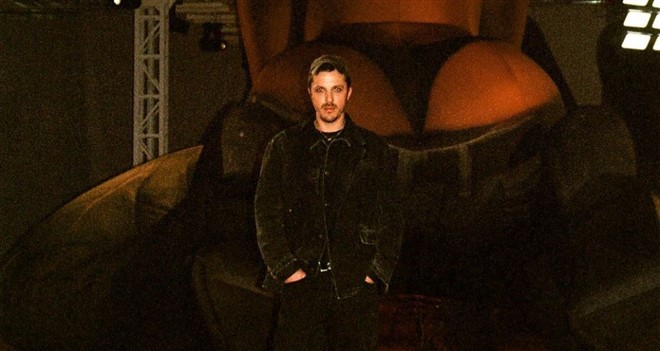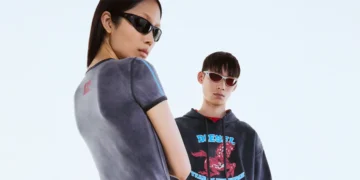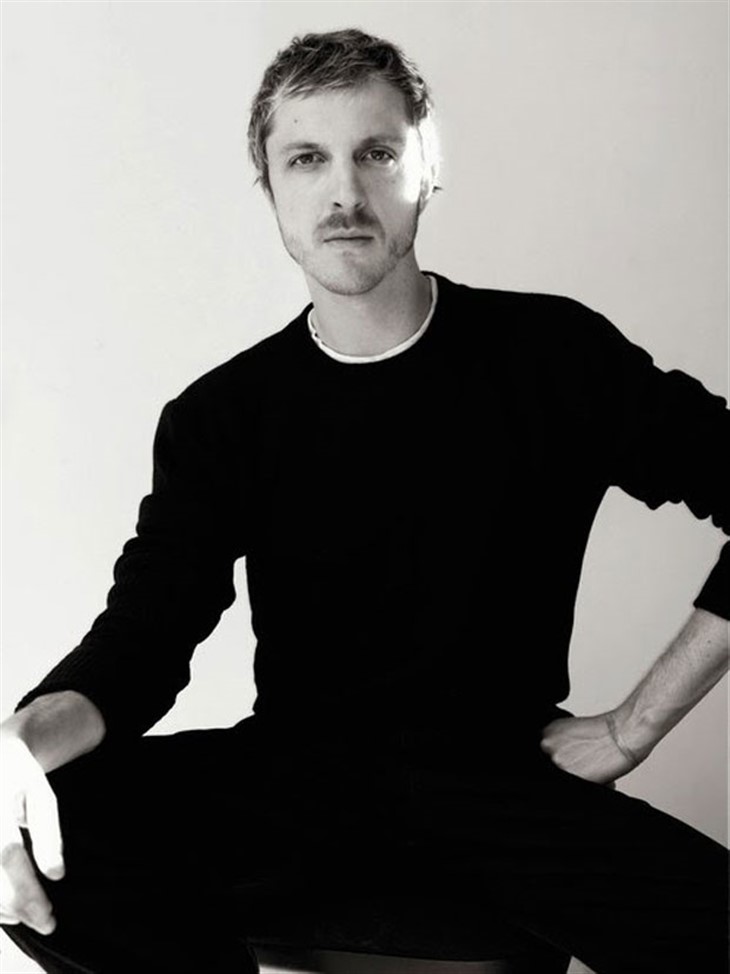
A heavyweight in contemporary fashion, Glenn Martens, is a designer who has managed to connect with the street and work in full harmony with the artistic avant-garde and with what is ‘cooking’ on the streets. An extremely creative mind who constantly challenges himself and fashion design, but is not suitable for mass taste as he has shown with his extraordinary designs. The fashion designer behind the Y/Project brand was named creative director of the struggling Italian brand Diesel globally known for its denim and daring advertising campaigns, and he continues to uplift the brand, making it the talk of the fashion world. Diesel is once again being talked about in superlatives, new collections are eagerly awaited, and the fashion clique was overwhelmed by a wave of enthusiasm mixed with nostalgia. But all this would not have been possible if Glenn Martens had not taken the helm of the sleepy Italian brand into his hands.
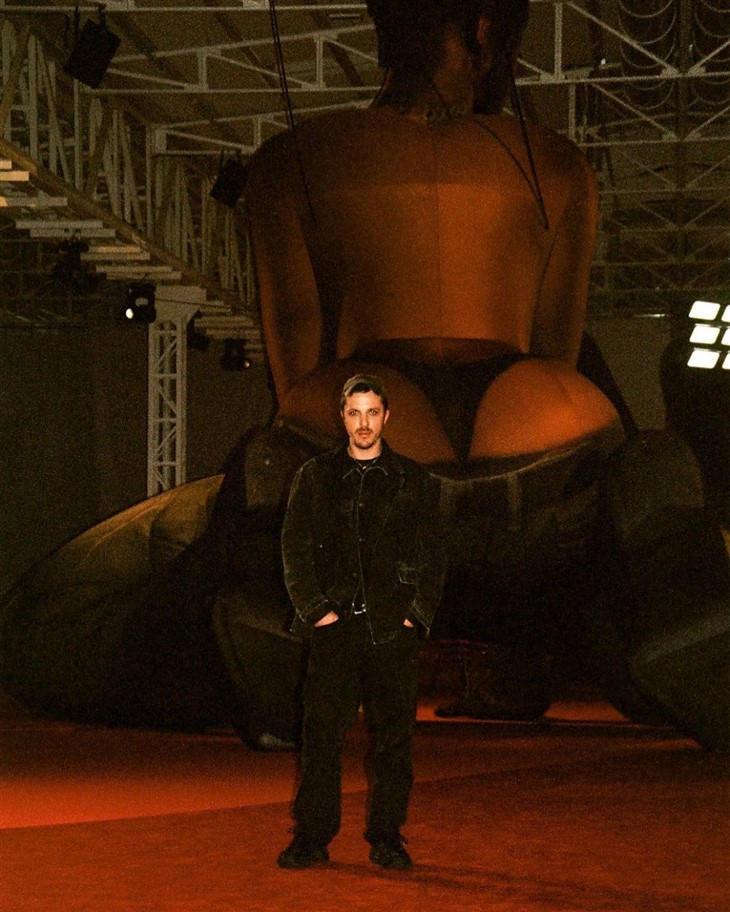
Early Life
Although, he doesn’t talk much about his private life, we know Martens was born in Bruges on 29th of April 1983. Being a kid of divorced parents, he often spent time with his grandparents, which taugh him to be organized and disciplined. After the divorce from his father, his mother had to do the cleaning on the side to keep the family afloat. After studying interior architecture, Martens ended up in fashion quite by accident. With only a few sketches and no hope of being accepted, he applied to the Royal Academy of Fine Arts in Antwerp, where he eventually graduated first in his generation. Given his situation, Martens never had a lot of money at his disposal, especially not during the first years as a young designer in Paris where he began his career working for designer Jean Paul Gaultier, immediately after graduating from the Royal Academy of Fine Arts in Antwerp.
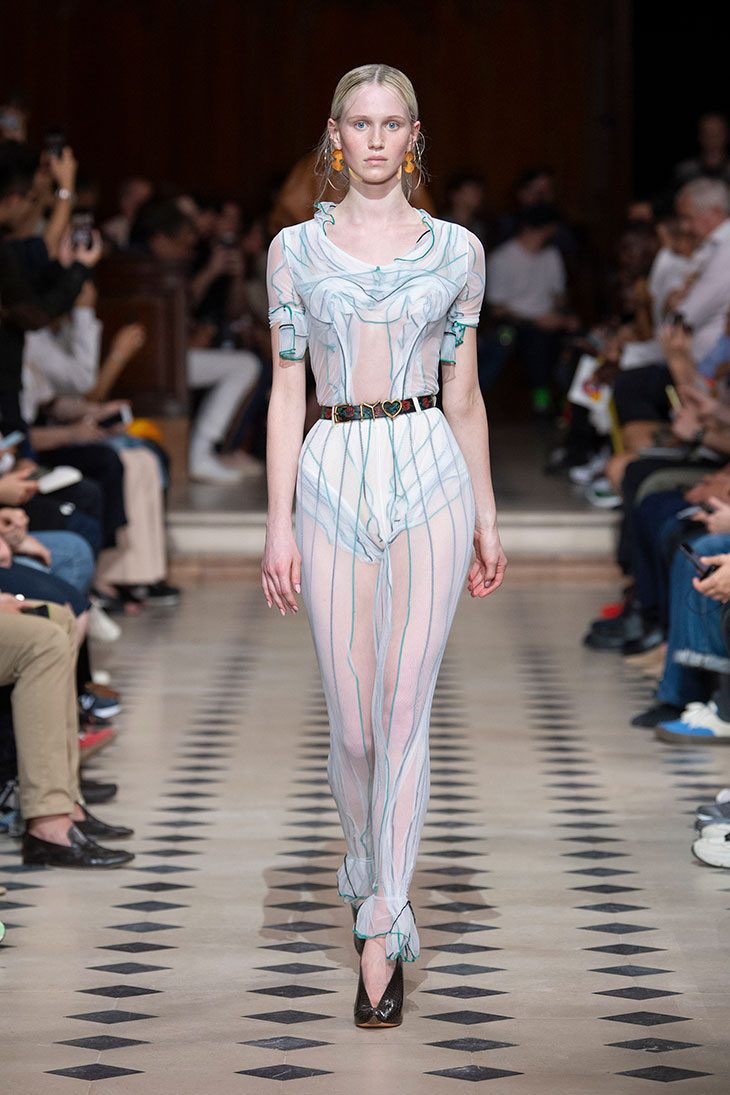
Y/Project
After learning everything he needed to know from the master himself, Jean Paul Galutier, Glenn Martens joined Yohan Serfaty‘s team at Y/Project as an assistant. In 2012, he ventured and launched his own brand of women’s clothing, but after only three seasons, he ended that project due to the sudden death of his mentor Yohan Serfaty and accepted the role of creative director at Y/Project. In just a few seasons, he transformed the brand into one of the most exciting brands on the Parisian fashion scene, and sales exceeded all expectations. The Y/Project world is a stratification of seemingly irreconcilable opposites. It is rough and dirty, but loaded with a richness of details, and of the whole image drawn from the story, which was Martens’ childhood passion. It is a world populated by ladies suspended between rococo and trash, of scoundrels dressed in acetate overalls and tailored trousers, of marauders with their coat closed like a cocoon. The search for an alternative aesthetic, shocking because not immediate, started for Martens right from the men’s collection, which was later added to the women’s line.
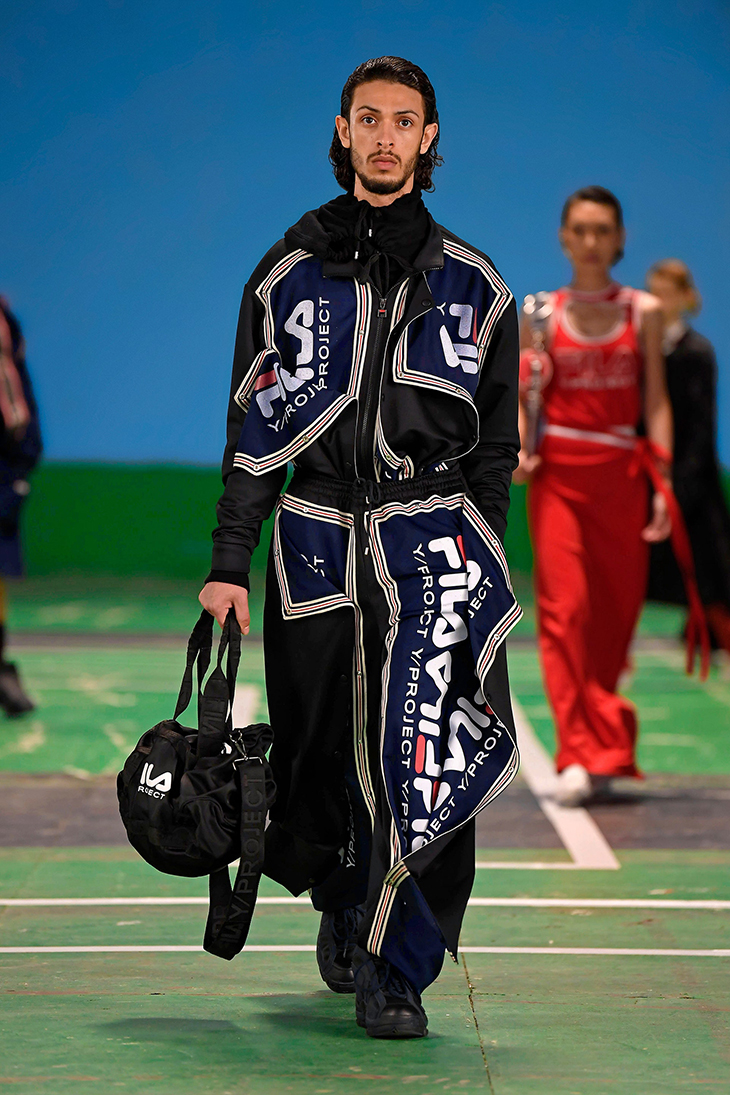
To complete this journey and shape Y/Project in his own image, Martens took his time, refining a unique design method, made up of recklessness and rigor. It is no coincidence that Martens arrived at fashion studies at the Royal Academy of Antwerp, the alma mater of Margiela, Demeulemeester and various conceptualists after graduating in architecture from Ghent. The scientific accuracy of the approach shines through in what at first appears to be an absurd proliferation of layers and details, under the excessive lengthening of trousers, sleeves and buttoning that twist and dangle everywhere. This makes Y/Project an experiment in design, not in styling: the complex shapes are born in the design and cutting phase, not in the assembly of the looks for the catwalk, and are the result of extreme research into the possibilities of modeling. It is no coincidence that, in the Parisian studio of the Martens brand, a strategic place has been chosen at the common table in the open space: the corner workstation, directly overlooking the atelier.
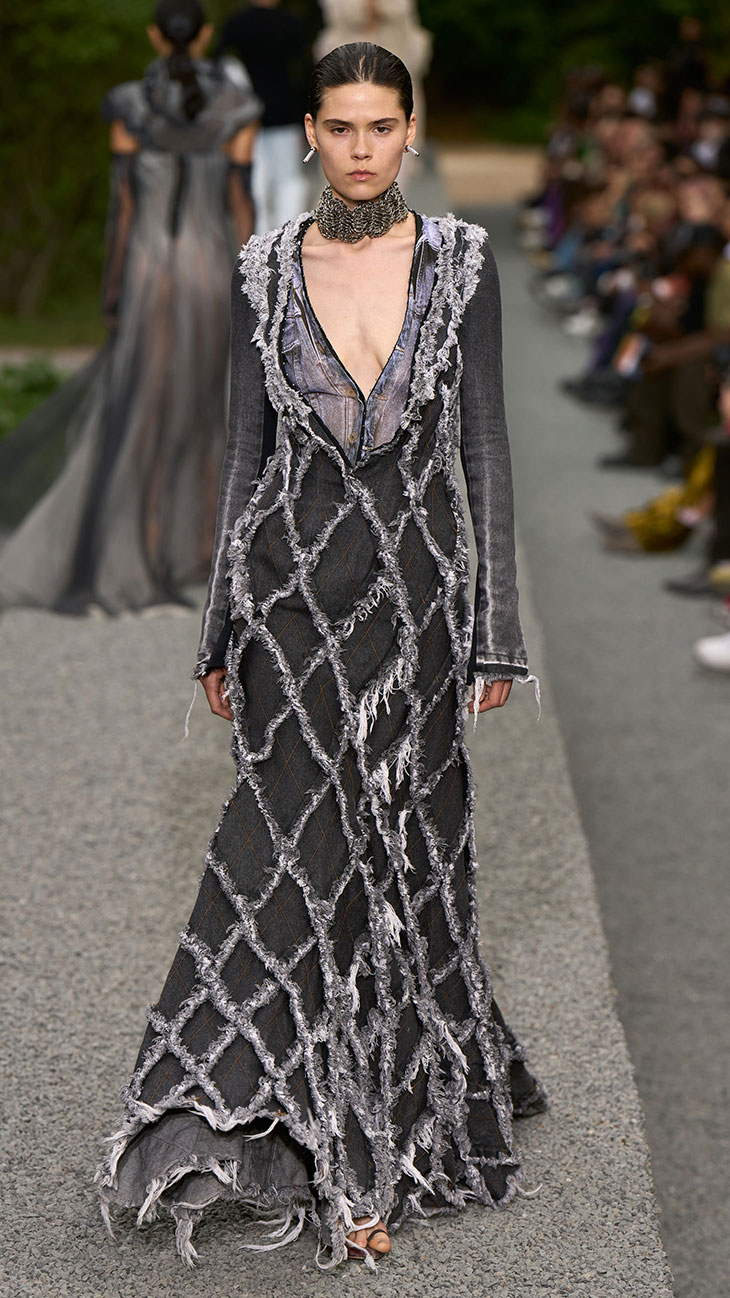
The result is a wholly original aesthetic: Y/Project, today, is synonymous with smug but mocking masculinity, symmetrically far from both vulgar youthfulness and the advancing reactionary neo-formalisms. It’s an abrasive puff, most of the time; sharp, even brutal. The hallmark of an original creator, incapable of half measures, who forged his own authorial signature by creating multifunctional and playful clothes, to be worn in infinite ways because, like open works, they reject univocal meaning and function. The success of the brand is visibly seen in 2016, when Y/Project entered the finals for the prestigious LVMH award, and the following year, Martens received the ANDAM award for his work and €250,000 to invest in the brand’s operations.
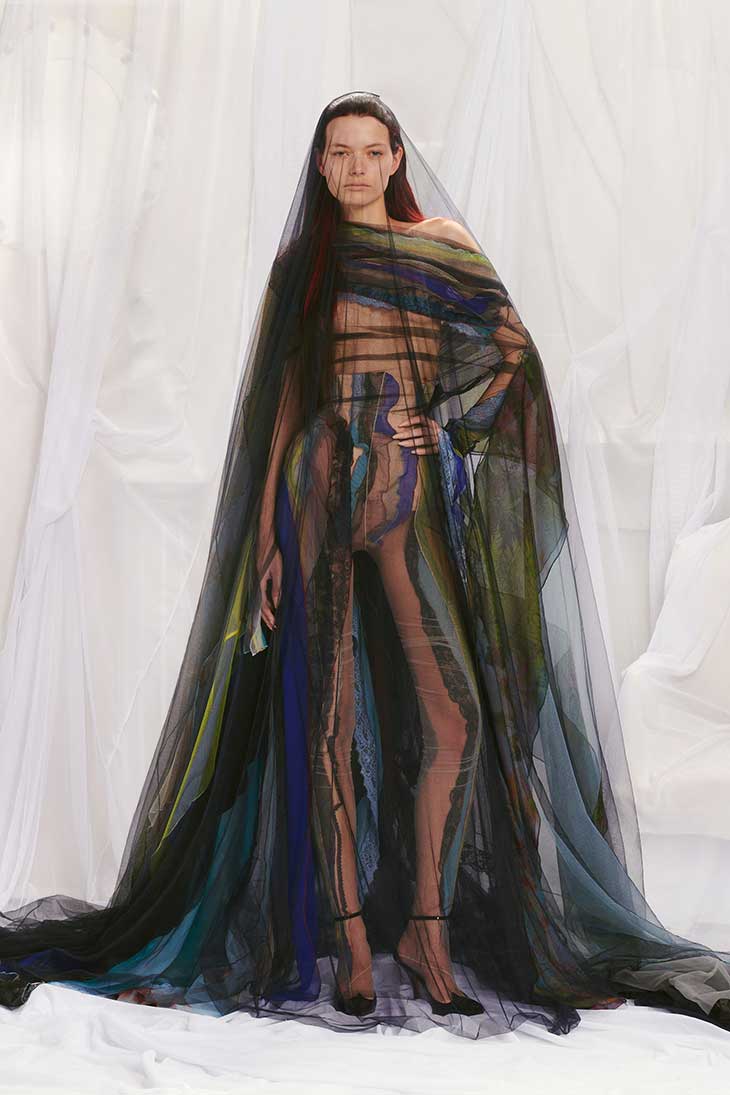
The brand has also ventured into collaborations with sportswear brand Fila, brazilian brand Melissa and Diemme, but the most notable collaboration was with Martens’ mentor Jean Paul Gaultier for the Spring Summer 2022 Haute Couture Collection. The collection reimagines Jean Paul Gaultier‘s codes and heritage with a joyful and modern touch. The garments bring historical references and dramatic allure of the House. The collaboration continued with a Y/Project x Jean Paul Gaultier collection filled with ready-to-wear pieces blending the houses aesthetics.
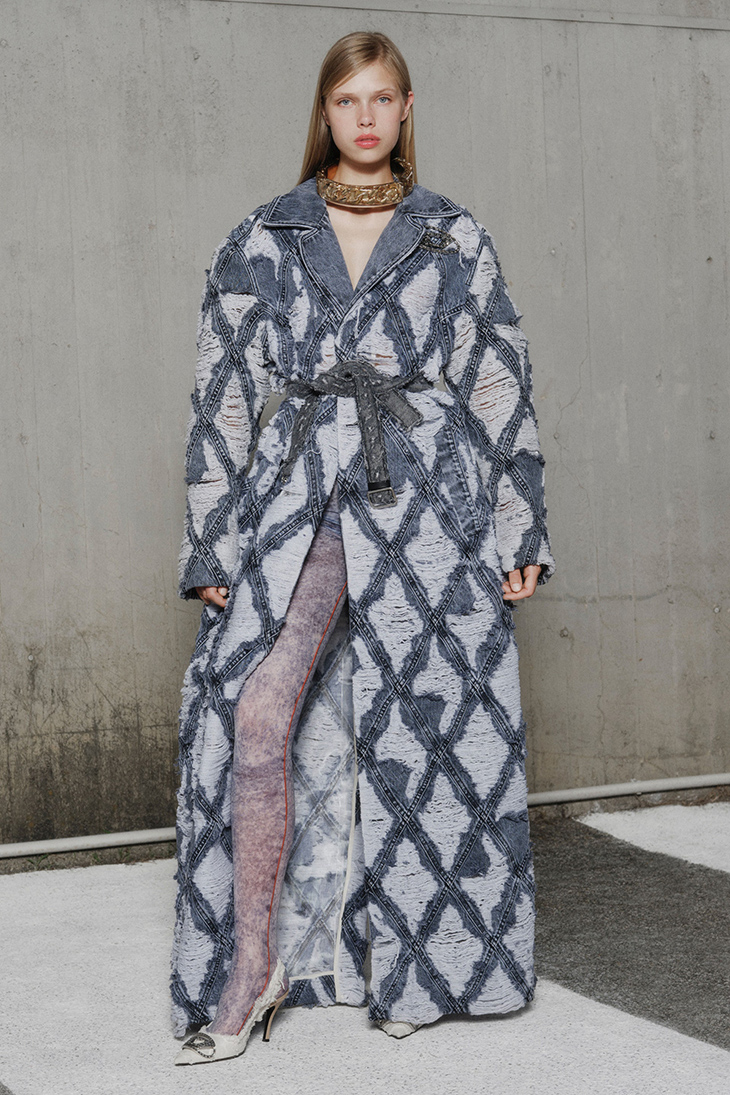
Diesel
The very next year after getting the ANDAM award, Martens started collaborating with Diesel as a guest designer for Red Tag project, but after the great success of the collection, the Italian house offered him the position of creative director in 2020. It was a big step forward for Diesel, whose design team was left without a leader in 2017 when Nicola Formichetti left, but also for Glenn Martens who was entrusted with such a big task as the renaissance of a brand that marked his generation. Glenn himself recalled with nostalgia the time when, as a 15-year-old kid, he worked as a waiter in his native Bruges to save up for Diesel jeans. Precisely because of this, Martens will certainly not forget the rich legacy of the brand that it has in its hands today. He decided to rebuild it on the old foundations, the ones that attracted him when he was a teenager captivated by the rebellious vibe and general exhilaration that reigned around Diesel. Sustainability, inclusiveness and innovation are the three pillars on which Glenn plans to build Diesel.
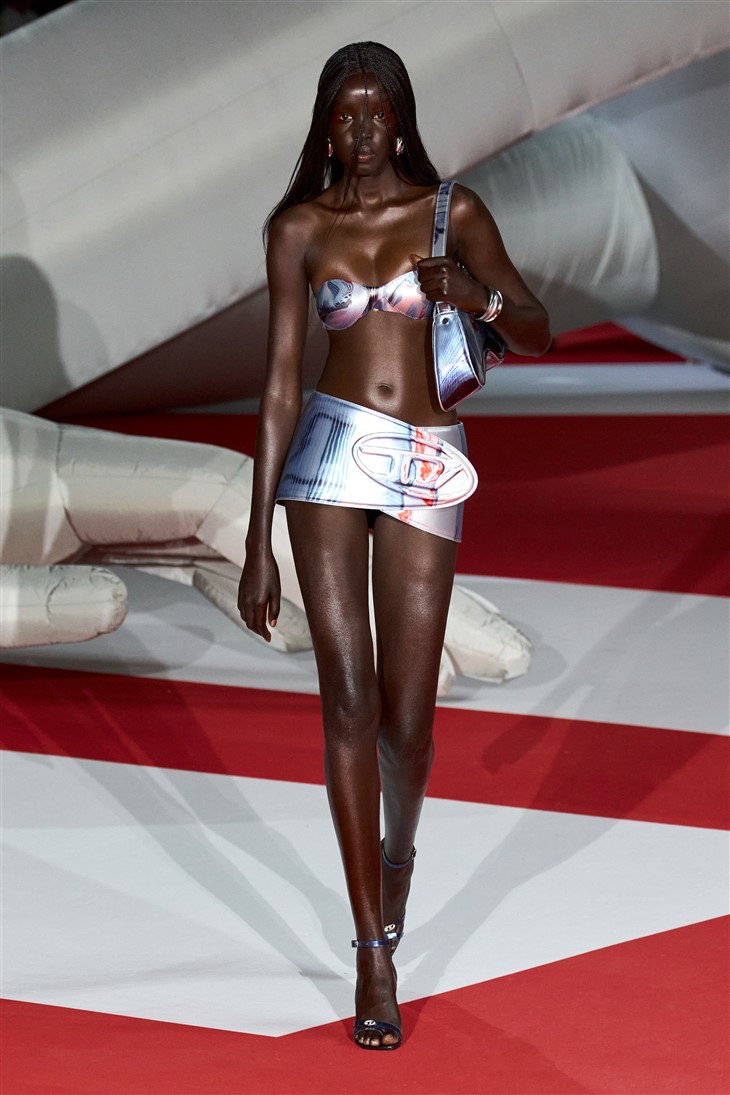
The signature denim look, is the ultimate inspiration for Diesel’s every season. Washed denim top and pants set the tone for the entire show, inspired by the reigning Y2K aesthetic, as well as motorcycling and couture. The dominance of denim on the runway is quite expected considering that it is Diesel’s forte, but each look presented denim in a new guise. It’s really a material that can be used for almost any piece of clothing, not only jeans, but also one that can be presented in different colors and worn on all occasions – the possibilities with denim are endless, and Martens seems to have decided everything try them out. The highlight of Martens’ designs was definetly the belt skirt introduced during Martens’ first runway show for Diesel, presented in Milano with the world’s largest ever inflatable sculpture standing in the centre of the runway.

In addition to bringing a dose of excitement back to the Diesel runway, during the period in which he became creative director, Martens also brought back the advertising campaigns, bringing back the provocative Diesel style. His first campaign for the brand included stars like Toni Braxton, Diesel founder Renzo Rosso, Aron Piper, to name a few, wearing the newest denim offerings made from sustainble sources. He also showed that provocation is what he wants with an invitation to the fashion show, which arrived in the form of a glass sexual aid.
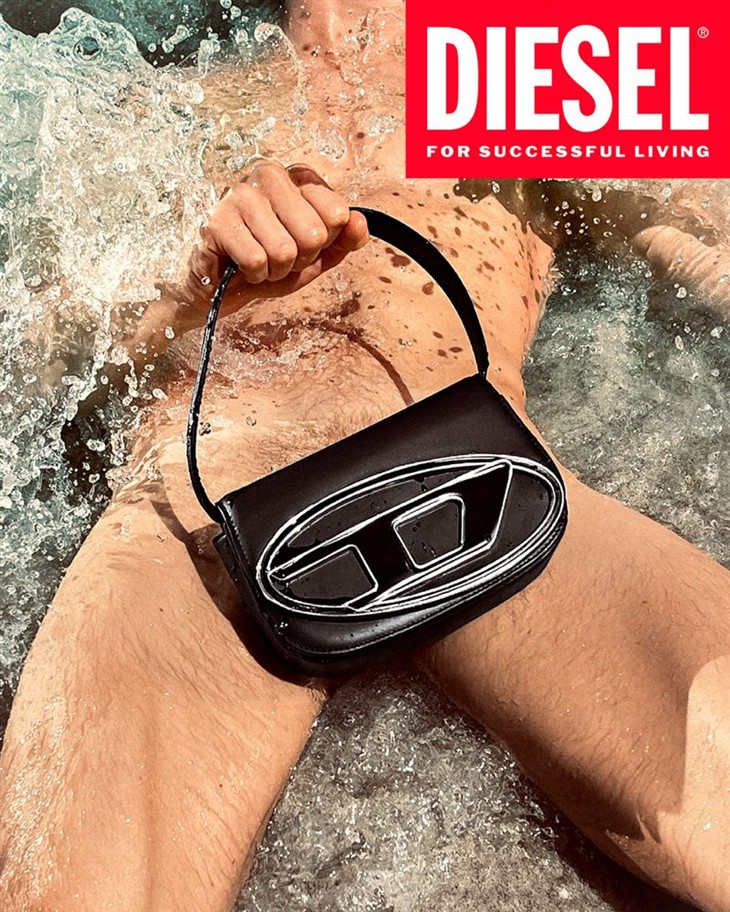
He also created the brand’s first must-have bag – 1DR, which stands out with the brand’s logo in the shape of the letter D. The bag reconciles the style of the beginning of the millennium with futurism and a timeless look, and represents a departure from the fashion accessories that the brand normally offered. The progress is also visible in the way of doing business because Martens, together with his team and the newly appointed CEO of the brand, Erald Poletta, has invested in the Italian brand becoming sustainable, using less water and chemicals when creating denim pieces, and encouraging the circular economy through the second hand program which they started.
The modern era of Diesel, a brand with a rich heritage that has been around since 1978, is certainly helped by the fact that the aesthetic from the period in which the Italian brand enjoyed its greatest success is at the price, but a lot remains on the appointment of Martens, without whose energy Diesel would have remained forgotten. The designer is surely heading in the right direction, taking the Lyst’s Logo of the Year award and gaining a huge amount of searching due to its new, above mentioned, siganture bag. The future is bright for Martens, we’ll just have to wait and see what he’s got in store for us.
Words by DSCENE Digital Editor Maja Vuckovic
